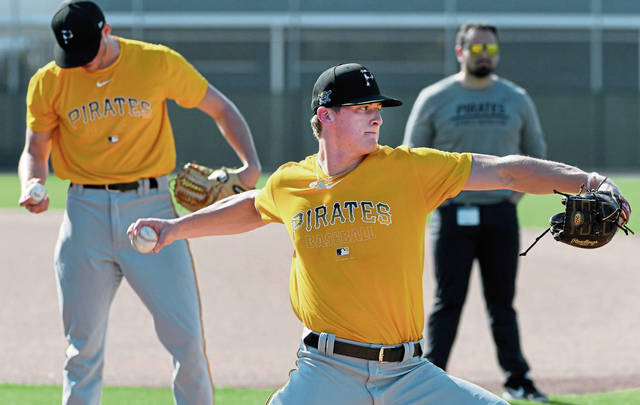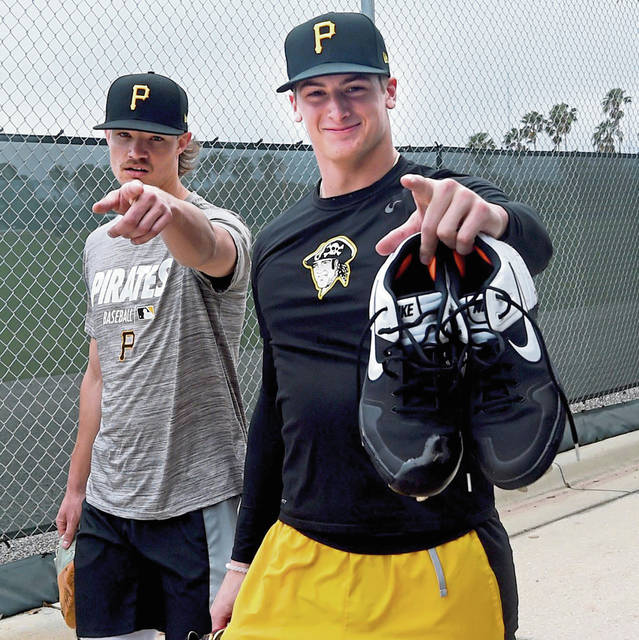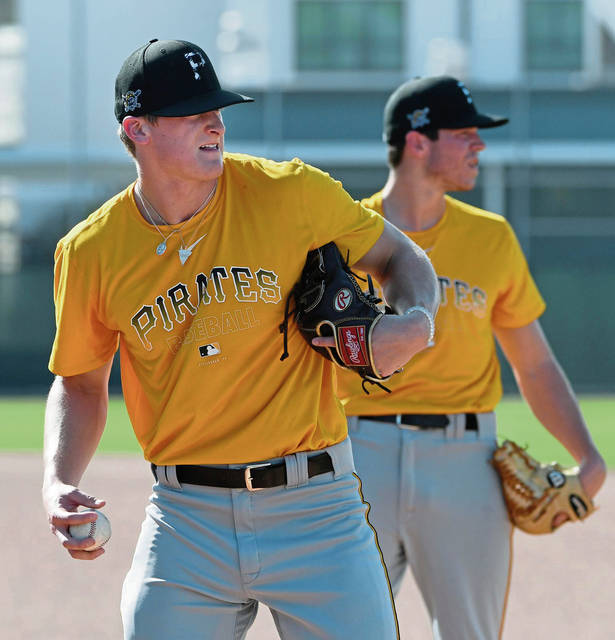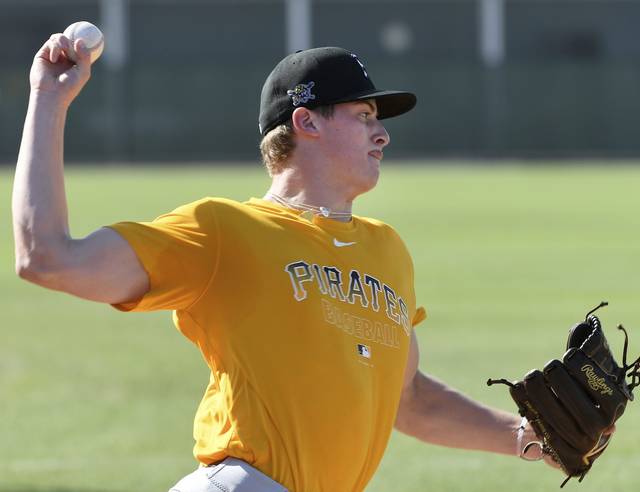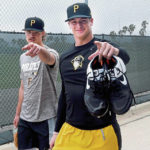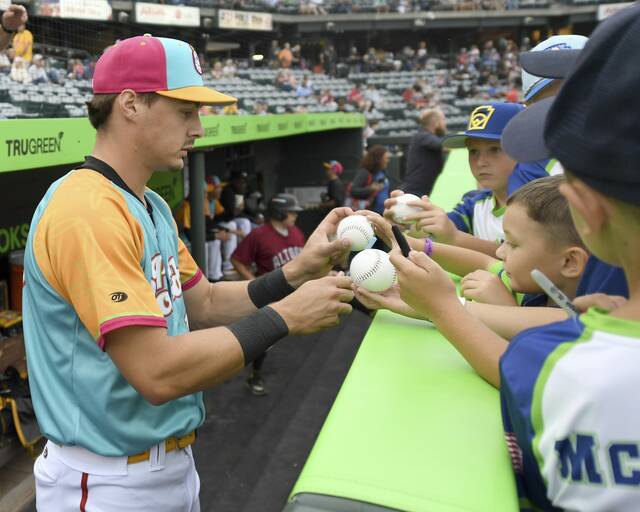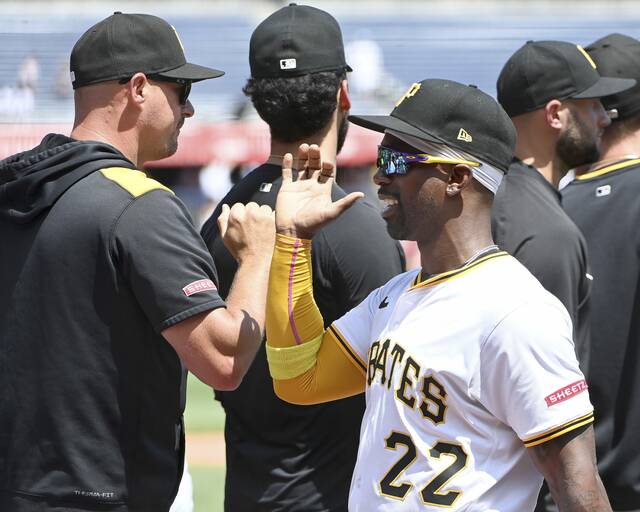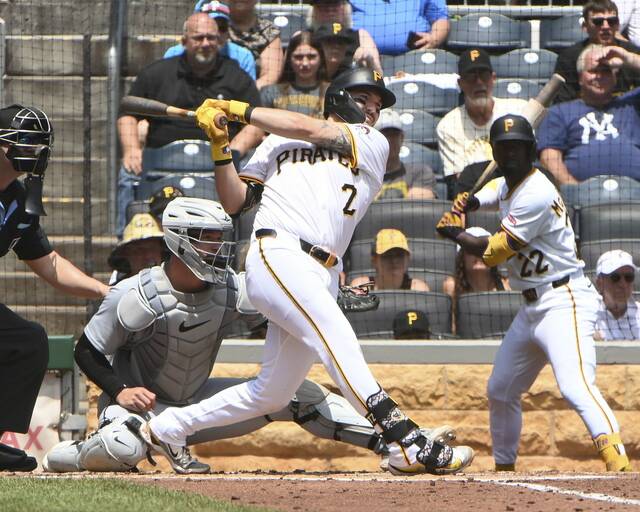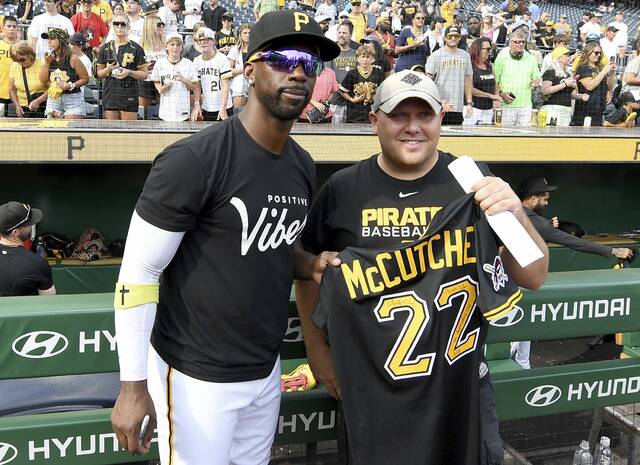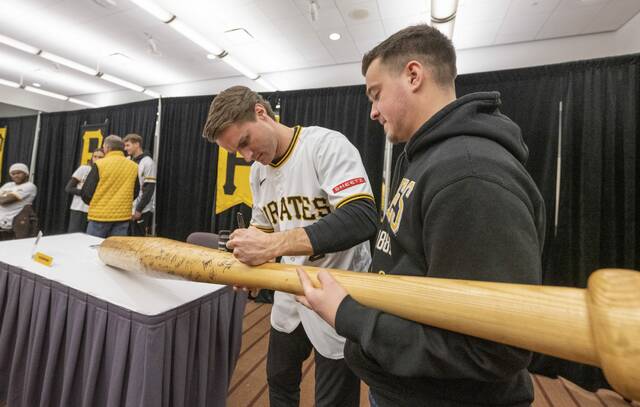With broad shoulders and a lean, muscular physique, Quinn Priester looked the part while mingling with the major league pitchers in the Pirate City clubhouse.
Only nine months ago, Priester was getting ready to graduate from Cary-Grove High School in suburban Chicago. Now, the Pittsburgh Pirates first-round draft pick is turning heads in Bradenton, Fla. At 6-foot-3, 215 pounds, the physically imposing Priester is making a positive first impression.
“He definitely physically does not look like a 19-year-old walking around,” said Larry Broadway, senior director of minor league operations. “He’s pretty well put together.”
Priester arrived early last month for a pitching development camp at Pirate City, which gave him a chance to rub shoulders with members of the starting rotation before the start of Grapefruit League games. He was on the same flight from Chicago as Mitch Keller, so they talked pitching and played catch.
“He’s bigger than I am,” said Keller, a 6-2, 210-pound right-hander and the organization’s top pitching prospect. “When I saw him for the first time, I was like, ‘You were drafted last year?’ That’s crazy. I think he’s got a lot of talent, just playing catch with him for one day. He looks pretty polished for a high school kid.”
What’s even crazier is Priester, after only nine games as a professional last summer, already is regarded as a top-10 prospect for the Pirates and was ranked by The Athletic’s Keith Law as a top-100 prospect in baseball.
So Priester is the perfect candidate to follow under the watch of new Pirates general manager Ben Cherington, who has stressed the importance of player development. That must include players drafted by his predecessor, Neal Huntington. The Pirates invested the No. 18 overall pick and a $3.4 million signing bonus in Priester, who has a four-pitch repertoire that features a 97-mph four-seam fastball, a two-seamer and a hammer curve but requires development of a changeup.
Priester’s progression started with casual conversation over lunch at Pirate City with starting pitchers such as Keller, Chad Kuhl and Jameson Taillon. Priester had plenty of questions for them and soaked up their answers like a sponge.
“Being able to talk to them and see their thought process and how they go about pitching and how they are as people is good to know,” Priester said. “They are at the goal I’m trying to achieve. The more you can learn, the better. Just being able to talk to them and them giving me their advice has been huge.”
Their best advice?
“To not take the game too seriously,” Priester said. “You’re going to fail. Learn from that and keep getting better.”
This represents a philosophical shift for the Pirates, who watched Taillon’s development delayed by injuries and top prospects such as Keller and Tyler Glasnow dominate the minors only to struggle in their transition to the majors.
That forced the Pirates to realize failure is part of the formula for developing successful major leaguers, so they are trying to better prepare players to handle eventual pitfalls and setbacks. That requires a relaxing of their prescribed approach and pushing players to take some ownership in their development.
In that respect, Priester is ahead of the game. He never had a formal pitching coach, instead studying YouTube videos of his favorite pitchers to pick up tips on arm angles and lower-body movement. Priester is more polished mentally than you would expect of someone who also starred as a wide receiver on a state champion football team and played baseball in the Midwest without the benefit of a pitching coach.
“He looks like he has,” Broadway said. “I know he hasn’t. He’s done a lot online and his own research and internalized the information. So he has had a pitching coach — himself.
“To his credit, he’s very curious and has spent a lot of time at it. He definitely took ownership. It shows definite maturity for a young guy. He can really take a lot of information and process it and make sense of it.”
Broadway said “it’s not out of the question” Priester could pitch a full season this summer, depending on how he performs in minor league spring training. Last summer, Priester was 1-1 with a 3.03 ERA and 1.19 WHIP with 37 strikeouts and 10 walks in eight games (seven starts) in the rookie Gulf Coast League. He was promoted to the short-season West Virginia Black Bears for one game, where he allowed three runs on three hits and four walks in four innings. Priester averaged 10.1 strikeouts per nine innings.
“The competition level obviously got a lot higher than high school ball,” Priester said. “That provided some challenge to overcome. That was a ton of fun, to battle those guys and get deep into counts — even though I didn’t want to be deep into counts — but just being in that competition level makes me want to compete harder and harder.”
And, the Pirates should stress, smarter and smarter.
Priester’s development should be paramount for the Pirates. He still has a long way to go but it’s not so crazy to imagine Priester as a major leaguer someday, especially when he’s standing shoulder to shoulder with Pirates pitchers and physically looking like he belongs in their company.
“Yeah, absolutely. No doubt,” Priester said. “I see those guys running out with their names on their backs every morning and it just is a fuel to that fire of achieving that goal.”
Priester is taking ownership of that goal, making a powerful first impression.
It’s up to the Pirates to make sure Priester looks the part when he pitches at PNC Park.


